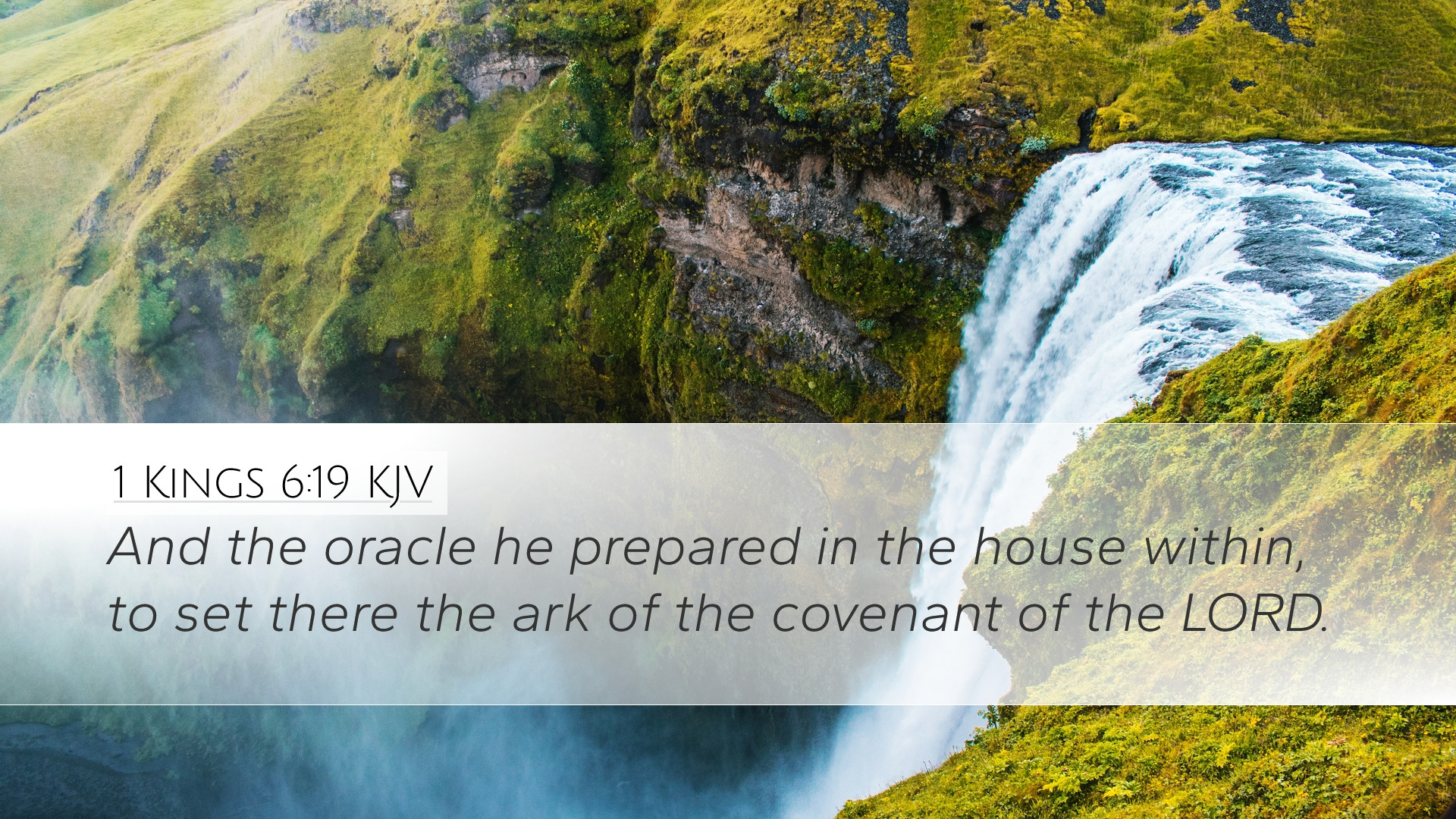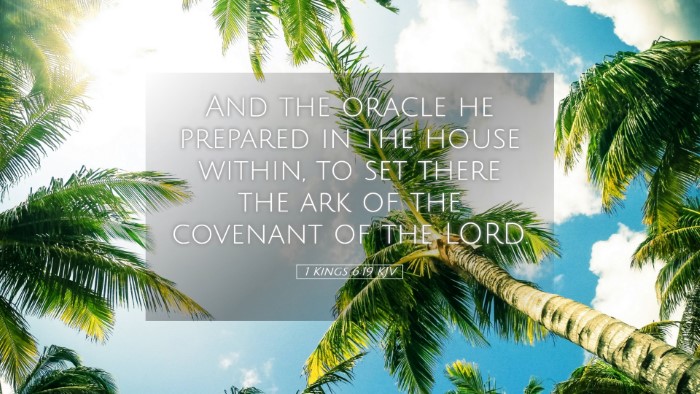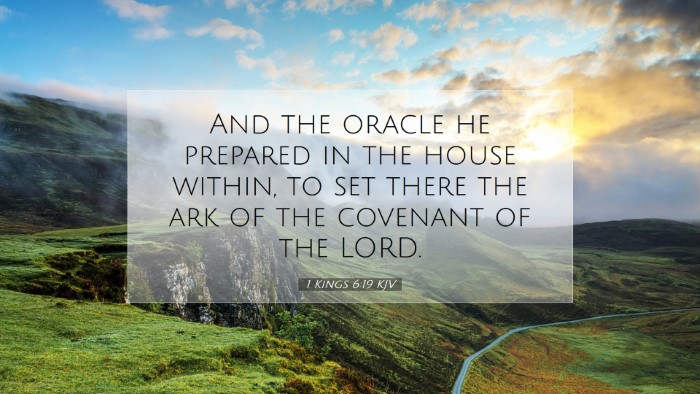Commentary on 1 Kings 6:19
1 Kings 6:19 states: "And the oracle he prepared in the house within, to set there the ark of the covenant of the LORD." This verse marks a significant moment in the construction of Solomon's Temple, highlighting the sanctity and centrality of the Ark of the Covenant. This commentary will explore the theological implications and insights derived from this scripture, drawing from the works of notable public domain commentators.
Significance of the Oracle
Matthew Henry emphasizes that the oracle, or the Most Holy Place, was intended to be the dwelling place of God among His people. This is symbolized by the Ark of the Covenant, which represented God’s presence and covenant with Israel. The preparation of the oracle indicates Solomon's understanding of the holiness required in approaching God.
Albert Barnes notes that the term "oracle" refers specifically to the inner sanctuary of the Temple, signifying a place of divine communication and worship. The particular mention of preparation suggests that Solomon took great care to ensure this space was fit for God’s presence, indicating a heart dedicated to glorifying God.
The Ark of the Covenant
The Ark, containing the tablets of the Law, speaks to God’s relationship with His people, as Adam Clarke states. It serves as a reminder of God’s commandments and His faithfulness. The decision to place the Ark within the oracle signifies that the Law not only governs Israel's conduct but is also intrinsically related to God’s presence among them.
Theological Implications
- Divine Presence: The oracle is a crucial symbol of God’s dwelling with humanity. As highlighted by Henry, Solomon’s preparation illustrates the importance of reverence in worship.
- Covenant Relationship: Having the Ark within the oracle represents the ongoing covenant relationship between God and Israel, emphasizing the need for obedience to God's laws, as detailed by Barnes.
- Holiness and Preparation: Clarke elucidates that the meticulous preparations made for the oracle reflect the necessity for holiness in approaching God, a principle that applies to worship practices even today.
The Role of Solomon
Solomon’s role in preparing the oracle is crucial; he not only authorized the construction of the Temple but also demonstrated leadership in the spiritual formation of Israel. Henry points out that Solomon sought to frame the worship practices of Israel around the notion of God’s holiness and presence.
Barnes further adds that Solomon's awareness of the significance of the Temple and the Ark signifies a desire to establish a lasting legacy of faith and worship in Israel. His leadership serves as a model for contemporary leaders to prioritize God’s presence in their communities.
Application for Today
The insights from 1 Kings 6:19 challenge modern pastors and theologians to reflect on the nature of worship and the place of God's presence in their congregations. The preparation of the oracle reminds us that worship requires intentionality and reverence.
As Clarke mentions, the need for holiness remains a critical aspect of worship. Leaders today must ensure that their approach to God is characterized by understanding His holiness, as reflected in their worship services.
Conclusion
In summary, 1 Kings 6:19 serves as a rich theological text that speaks to the heart of worship and the significance of God’s presence. Solomon’s preparation of the oracle for the Ark of the Covenant is a profound reminder of the importance of spiritual readiness and the centrality of God’s covenant with humanity.
Through the reflections of Matthew Henry, Albert Barnes, and Adam Clarke, we gain valuable insights into the meaning of this verse. It prompts us to consider how we might create spaces in our lives and ministries that honor God’s holiness and presence, ensuring that we maintain a sacred approach to worship.


